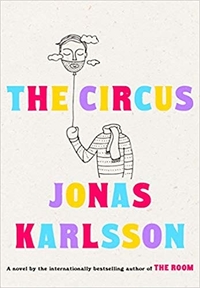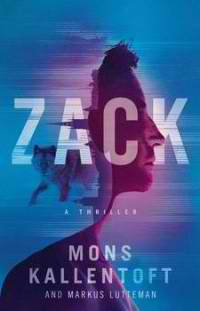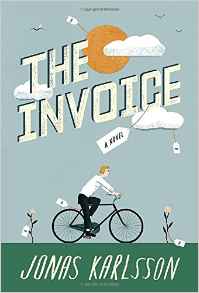The Rock Blaster by Henning Mankell
 Monday, February 17, 2020 at 6:03AM
Monday, February 17, 2020 at 6:03AM 
Published in Sweden in 1973; published in translation by Vintage on February 18, 2020
At some point during The Rock Blaster, the protagonist comments that there should be more books like those by Swedish author Vilhelm Moberg, whose “characters were not in any way remarkable. They were like all the others. But you get to see how much happened in their lives.” The Rock Blaster is Henning Mankell’s contribution to the literature of the Everyman.
Oskar Johannes Johansson identifies himself as a worker, what would now be called a manual laborer. Construction work, rock blasting, whatever comes along. “He belongs to a group that he sees as clearly defined and also clearly segregated.” His father and grandfather were workers. He has had “the same life as everyone else. Brutal swings between having work and being laid off.” Much has changed during his life but he feels he has had no part in shaping those changes. “The worker is a member of his community, but the forces driving and changing society are wielded by others.”
The narrator tells Oskar’s story in snippets, focusing on events between 1910 and 1969, with diversions that examine Oskar’s roots and the contemporaries who influenced his life. A defining moment comes in 1910, when Oskar proclaims himself a socialist and is no longer allowed to live at home. Another occurs in 1911, when he miraculously survives an explosion in a rock blasting accident. He loses an eye and has his eyelids sewn together rather than opting for a glass replacement. He loses a hand and prefers a stump to a hook. Near the end of his life he has three teeth but can’t be bothered to buy dentures because what’s the point? Oskar lives with deterioration and loss, accepts it and even embraces it as life taking its natural course.
Oskar is dating Elly before the accident, but she gets pregnant while he is in the hospital. By coincidence, he ends up marrying Elvira, her sister. They have children. He goes back to work as a rock blaster. He loses his job in the depression, gets a new one after unemployment peaks. He becomes a widower. He tries to comfort a friend who is losing his faculties to a degenerative disease. He loves the location of his inner-city apartment but the building gives way to a new housing project, forcing his relocation to a suburb. Later in life he spends summers on an island, in an old sauna that he has converted to a single room dwelling. He spends his last years recalling what it was like to be young and vigorous.
Like a Moberg novel, The Rock Blaster is the story of an ordinary life. Ordinary but not uneventful, in the way that all ordinary lives are assembled from a series of chance events. Oskar struggles and perseveres. He feels stupid and lonely, but he manages those feelings. Like a hundred billion others in human history, he’s here and then he’s not.
The Rock Blaster explores the role of ordinary people in Swedish society, people who have “only been allowed to speak in murmurs, yet they were the ones doing all the fighting and being beaten.” They are the ones who build society and keep it running, yet they are at the bottom of the pyramid, holding it up so that the rich and powerful can reap a disproportionate share of the benefits. Oskar becomes disenchanted with the Social Democrats because they focus on civil servants, creating unnecessary jobs that are given to people who develop a sense of entitlement, leaving workers behind. Oskar remains convinced that a worker’s revolution will one day come, although he is sad to have missed it. At the same time, he always says hello to his neighbors because he knows he is part of something bigger than himself. “Whether you like it or not, you’re part of it. Just spit in the ocean once. Then you have all the eternity you need.”
The Rock Blaster is Mankell’s first novel, the latest to be translated into English. It shows the ambition and unevenness of a first novel. The Everyman theme is too heavy-handed, as if Mankell didn’t trust the reader to understand the point of creating an ordinary character. He makes his points with needless redundancy. Still, the story is an effective reminder that, while we become spellbound by the lives of extraordinary people, ordinary people are the foundation of society. And in a sense, most people are extraordinary. To persevere after losing a hand and an eye is remarkable, but people do it all the time. To care about others, to be curious about the world and to wonder how it can be improved, are qualities of people who are gifted with compassion. The Rock Blaster reminds us that to be ordinary makes us a part of something extraordinary, something that we change and shape in our small way, even if we feel insignificant and powerless.
RECOMMENDED



